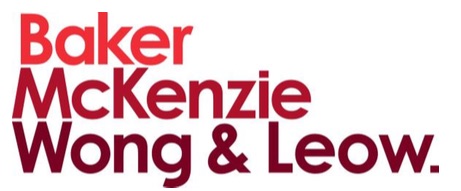13 August, 2019
On 11 July 2019, the SGX announced two long-anticipated changes to the voluntary delisting rules applicable to companies listed on the SGX Mainboard and the SGX Catalist. These two changes came into immediate effect.
Exit Offers and other delisting transactions must be both reasonable and fair
Prior to the change, an Exit Offer only had to be reasonable but not fair. Now, Exit Offers in conjunction with voluntary delistings must not only be reasonable, but also fair. This change effectively requires the price offered to shareholders in a voluntary delisting to be at least equal to the value of the target's shares (as implied by market price and comparable price premia).
According to guidance issued by the Securities Industries Council of Singapore, fairness is a quantitative assessment determined only by the value of the offer price compared against the value of the target's shares.
SGX expects the bases for determining the fairness and the reasonableness of the offer to be separately detailed in the opinions of Independent Financial Advisors ("IFAs").
Requiring Exit Offers to be both fair and reasonable prevents "double-speak", a criticism raised by minority shareholders in one of the recent voluntary delisting transactions in Singapore.
In that case, the IFA recommended the "lowball" voluntary delisting offer because it was reasonable, even though it was not at a fair price (i.e the offer price was below the value of the target's shares at the time of the voluntary delisting offer).
SGX will be working with relevant industry bodies to develop guidance and standards for IFAs in preparing their opinions. This will help shareholders make a more informed decision as to whether to vote in favour of the voluntary delisting proposal.
An Exit Offer must be approved by 75% of shares held by independent shareholders
Prior to the change, the approval threshold for a voluntary delisting resolution was 75% of shares held by all shareholders (including the offeror and its concert parties), with a 10% blocking vote (i.e. the resolution must not be voted against by 10% or more of the shares voting on the resolution).
Now, to pass a voluntary delisting resolution, the approval threshold is 75% of shares held by independent shareholders present and voting (with the offeror and its concert parties required to abstain from voting on the voluntary delisting resolution). This aligns Singapore's regime with that of Australia and Hong Kong, where minority investors ultimately determine the voting outcome.
SGX has also removed the previous 10% blocking vote. SGX acknowledged that the 10% blocking vote is in practice very difficult for minority
shareholders to muster. This is because it requires more than the passive act of not voting for the resolution. Shareholders must actively turn up to the shareholder meeting and vote it down.
Regulatory arbitrage discouraged
A voluntary delisting is not the only way to take a listed company private. Alternatives include general offers for the listed company's shares, schemes of arrangement and amalgamations.
SGX has emphasized that offerors should not hope to use these other forms of privatisation to avoid complying with the new requirements under the voluntary delisting regime.
To this end, SGX has made clear that in the context of a general offer, even if the takeover offer results in the loss of the company's 10% public float, SGX is generally unlikely to waive the voluntary delisting requirements unless the offeror satisfies the new regime's requirements.
Transactions not within the new regime's scope
Takeover offers under the Singapore Code on Take-overs and Mergers, where the offeror has become eligible to exercise its minority squeeze-out rights, and voluntary liquidations are exempt from the new requirements as to the fairness and reasonableness of the offer and the delisting resolution voting requirements.
Impact of the new regime
This is a welcome change to improve minority shareholder protection. It shows the SGX's receptiveness to public feedback. By bringing us closer to the regimes of Hong Kong and Australia, the SGX hopes to similarly increase the offer premia for privatization offers.
However, the new regime comes with its trade-offs. Voluntary delisting proposals will be more difficult to implement. Moreover, offerors will now be more hesitant to use a takeover offer as a delisting tool unless they are confident of garnering sufficient acceptances to become eligible to exercise their minority squeeze-out rights.
For further information, please contact:
Ai Ai Wong, Principal, Baker & McKenzie.Wong & Leow
aiai.wong@bakermckenzie.com





